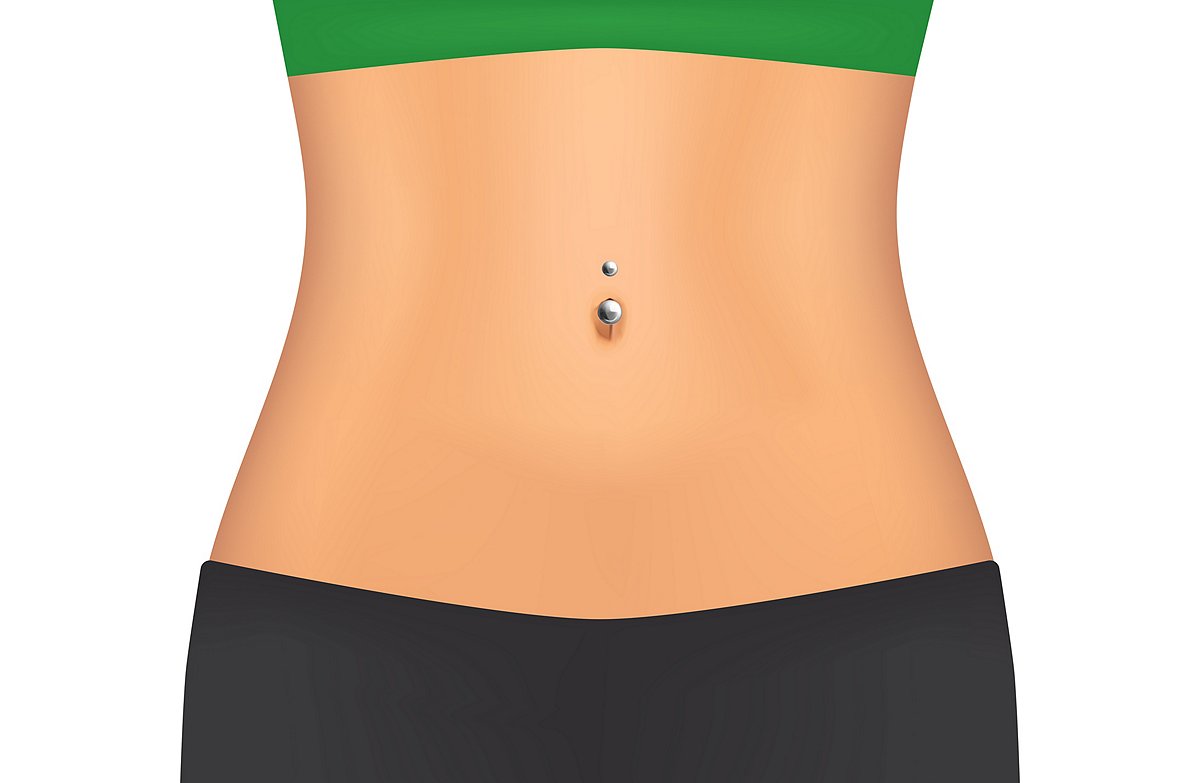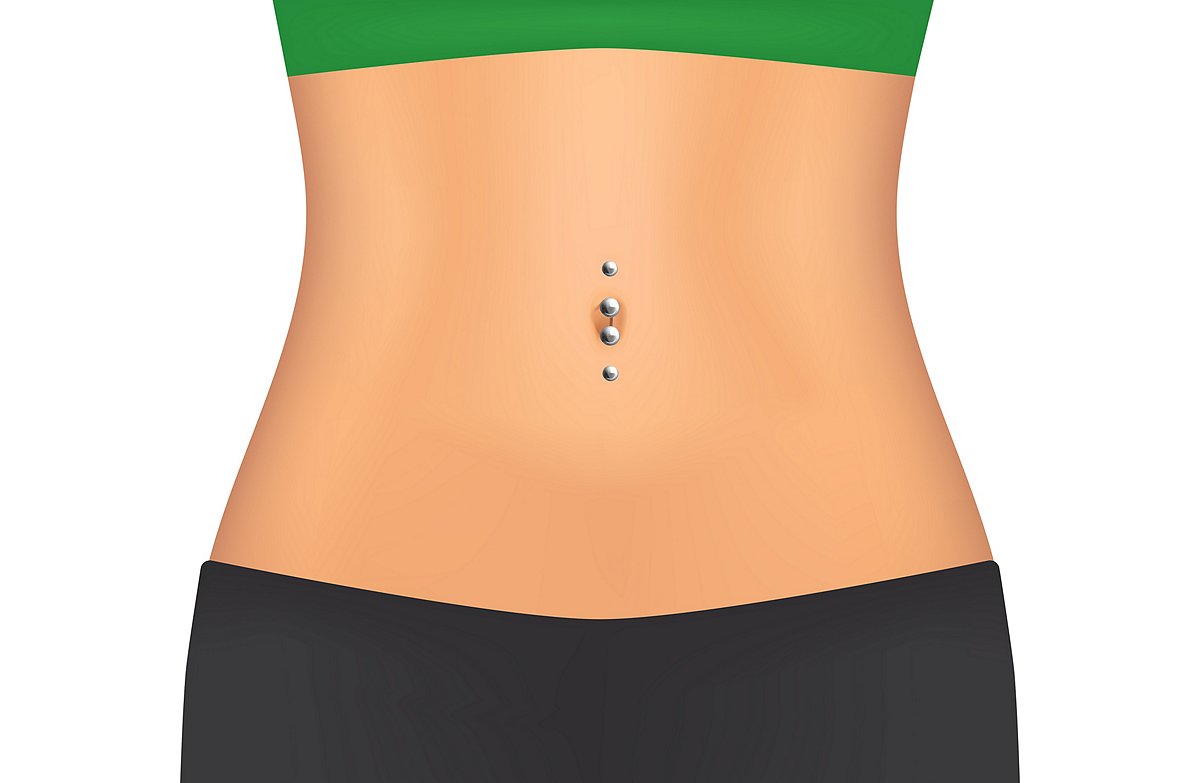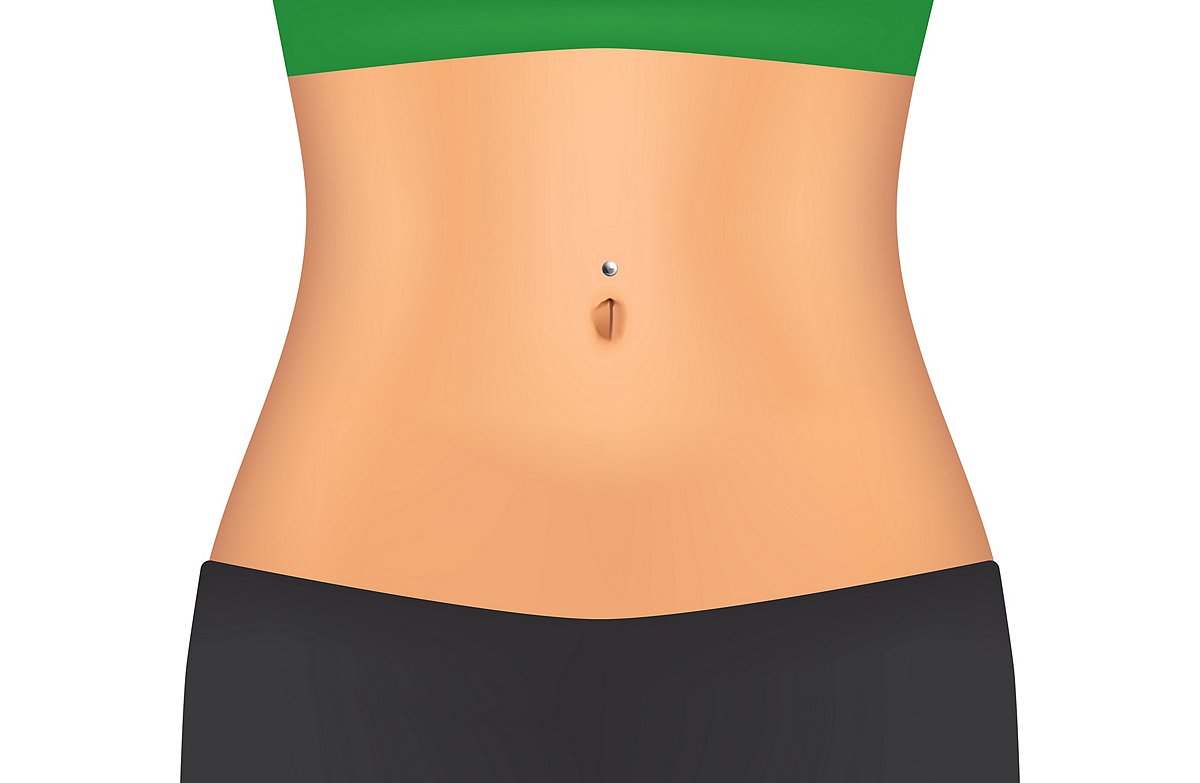How Much Does It Hurt to Get Your Belly Pierced
Life's a PARTY and we're making it FUN!
Belly Piercings: Everything You Need To Know
Belly button piercings are one of the most popular body piercing trends and we're here to tell you everything you need to know about it! Whether you already have a belly button piercing, or you're in the market to indulge in the sexy and sweet body mod, we're here to give you the lowdown on this popular piercing and related body jewelry .
The belly is one of many types of piercings you can get. One bonus is that you can choose to show off your belly jewelry by wearing a crop top or tying a knot in a t-shirt, or keep it covered up. From curbed barbells to dangle belly options, there's so much variety with this type of piercing. Your belly button jewelry can be something you wear every day or that you remove when you feel like it, once your initial piercing heals properly. Plus, many people enjoy seeing the look of this body jewelry on others.
Keep reading to find out the differing types of belly button piercings and how to care for them.
Before we get down to business, we want to point out some important facts. Belly button piercing healing times vary from person to person. Depending on your chemical makeup, you may heal faster or take longer to heal than the average person. It's best to talk to a professional piercer about which piece of jewelry will work best for you. They'll be able to tell you how long your belly piercing will take to heal so you can get an accurate estimation based on your body type.
Before we get into the nitty-gritty, we wanted to quickly touch on the type of jewelry used for belly rings. Once your piercer cleans the piercing area, belly buttons are typically pierced with a 14 Gauge surgical steel or stainless steel curved barbell. Though you'll continue to wear a 14 Gauge in your belly button, your initial jewelry will likely be 7/16" to allow extra room for possible swelling. Once you're completely healed, you can switch to a 3/8" barbell or stick with the 7/16". Other options include dangle belly ring or curved barbells. It all depends on what type of jewelry you prefer.
Belly Piercing Types

Belly Piercings
Belly piercing location: A belly piercing consists of one barbell located anywhere on your navel, whether that be on the top, bottom, or sides of your belly button.
Belly piercing process: This process is typically performed with a 12 or 14 gauge piercing needle.
Healing time: About 3-6 months.
Recommended Jewelry: Belly rings (banana barbells)

Double Belly Piercing
Double belly piercing location: A double belly piercing means two piercings, typically on the top and bottom of the belly button, equaling a total of four perforations.
Double belly piercing process: This process is typically performed with a 12 or 14 gauge piercing needle.
Healing time: About 3-6 months.
Recommended Jewelry: Belly rings (banana barbells)

Floating Navel Piercings
Floating navel piercing location: A floating navel piercing is an alternative for people who cannot get a traditional belly piercing due to the anatomy of their bodies. A floating navel piercing follows the same guidelines as a traditional belly piercing, but the bottom portion is much deeper into the navel, making it nearly invisible to the eye.
Floating navel piercing process: This process is typically performed with a 12 or 14 gauge piercing needle.
Healing time: About 3-6 months.
Recommended Jewelry: Belly rings (banana barbells)
Now that you have a better understanding of the different styles of navel piercings, here are some tips that will help you care for your new belly piercing:
- Try to protect your belly piercing from getting caught on clothing. Wearing something baggy will help prevent friction and minimize the chance of your jewelry getting stuck. If you're committed to physical activity, such as sports, you may want to cover the piercing with a bandage-type material to protect it from discomfort.
- We know you want to show off your belly piercing, and you should! One of the joys of having a belly button piercing is wearing an outfit that shows it off to full effect. But if someone wants a closer look, make sure they don't touch your belly jewelry, even if they just want to admire it. This could cause damage to your skin, which will be healing from the piercing.
- Don't go swimming for at least the first month after you get a belly piercing until you're sure that it's healed properly. This includes pools as well as the ocean, where sea salt could cause problems for your piercing.
- You'll want to decorate your belly with cute belly button rings , such as dangle belly rings (or, if you prefer, non-dangle belly button rings ), but it's very important that you do not change your belly ring until your piercing is fully healed. This will help minimize the chance of infection and ensure that your piercing heals properly. If you're not sure which style of belly ring is right for you, you might want to try a belly ring multi-pack .
Now that you understand the different types of belly piercings, here are some a few helpful FAQs:
Q: What materials are belly piercing jewelry made of?
A: Belly jewelry is often made of stainless steel, titanium, sterling silver, gold or acrylic.
Q: What does getting your belly button pierced feel like?
A: Unfortunately, as curious as you may be, there's no way to know ahead of time exactly what your own belly button piercing will feel like for you. Different bodies will react differently to the process. Similarly, while we've provided ranges above, the healing process differs person to person. What your friend felt when getting their belly button jewelry (or any piercing, for that matter) will not necessarily be your experience. As long as you use a reputable piercer with clean piercing guns and follow their aftercare directions, it should be smooth sailing.
Q: Do belly button piercings hurt?
A: Whether a belly button piercing will hurt is subjective, and depends on your sensitivity to pain and your specific body. Always use a professional piercer and make sure they are taking all the appropriate precautions before, during and after your belly piercing. You can also take aspirin ahead of your belly piercing to help you handle any pain you may experience. Making sure you choose a piercer with good reviews who uses clean materials and best practices will help reduce the chances of your belly button piercing hurting, but you should be prepared for at least some degree of pain.
Q: How long does a belly button piercing take to heal?
A: Belly button piercings take different lengths of time to heal depending on the particular piercing and your body. You can expect most belly button piercings will take 3-6 months to heal. One of the most important things to remember is to give your new piercing time to heal properly. Don't do things like go in a hot tub or a pool until you're sure it's fully healed. This will help ensure that you're taking the best care possible of your piercing. There's no way to rush the healing process, so before you get your piercing, make sure that you'll be able to follow the recommendations for caring for your piercing.
Q: What is the appropriate belly button piercing aftercare?
A: Always follow the aftercare instructions given to you by your piercer. This is crucial to ensure that your piercing stays in place and heals the way it's supposed to. Washing your hands is a key part of piercing aftercare hygiene. Make sure never to touch your piercing while your hands are dirty, and to be diligent about caring for it according to your piercer's directions, even if it feels to you like it's already healed.
Q: What is a small belly button piercing?
A: Belly or navel piercing jewelry is measured by gauges. Most belly piercings are either 12 gauge or 14 gauge; anything higher than that would be considered a small belly button piercing.
Q: How much is a belly piercing?
A: There's not definitive way to tell how much a belly button piercing will cost, since price varies by location and piercer. Make sure your piercer has professional credentials and positive reviews. You may want to ask friends in your town where they've gotten pierced and what their experience was like to get a sense of what the cost will be.
Q: How do you pierce a belly button?
A: Don't try this at home. You only want to get your belly button pierced by a professional piercer, who has the appropriate tools and training. This piercing site in particular is very delicate and requires the attention of someone who's trained with using piercing guns. You definitely want to protect your health and safety by finding a reputable piercer.
Q: What is a rejected belly piercing?
A: A rejected belly piercing is exactly what it sounds like: for various reasons, your body may reject your piercing. This isn't your fault; it's the skin's way of protect itself from something it thinks could be problematic. If you notice any skin irritation, pain or any other problems with your piercing, take it out and ask your piercer how to proceed. You may need to try it again with a different piece of jewelry.
Q: What does an infected belly button piercing look like?
A: Similar to a rejected belly piercing, an infected belly button piercing will likely look and feel irritated. Make sure you don't ignore it. If you're concerned that your belly button piercing (or any other piercing) is infected, after washing your hands, remove it and check with your piercer as to what you should do next.
Q: Will my belly button piercing scar?
A: There is a possibility that your belly button piercing will scar if it gets infected, or rejects the piercing, and it's not treated.
Q: Will my belly button piercing close?
A: If you remove your belly ring and leave your piercing without body jewelry for an extended amount of time, it's possible that, like any piercing, your belly button piercing will close. Whether that will happen to you, and how long it will take, varies from person to person. If you think your belly button piercing has closed, don't try to re-pierce it at home. See a professional piercer to determine the best course of action.
Q: Why shouldn't I get a belly button piercing?
A: We can't tell you whether you should or shouldn't get a belly button piercing, but if you're having second thoughts, you might want to wait. Consider what your concerns are; if you're not sure about whether you've found the right piercer, do more research. You can always choose to wait and get your piercing later. Maybe there's a different type of piercing that's more appealing or a better fit for your lifestyle. Take your time and make the decision that's right for you when it comes to any body piercing.
Q: How do I care for my belly button piercing?
A: As with aftercare, for ongoing care for your belly button piercing, we recommend consulting your piercing professional if you have specific questions, such as if your piercings hurt or you aren't sure what the best belly piercing jewelry is right for you. You can learn about how to clean your body piercings right here on our blog.
Piercing & Care Guides
Share This Story, Choose Your Platform!
How Much Does It Hurt to Get Your Belly Pierced
Source: https://www.spencersonline.com/blog/belly-piercings-everything-you-need-to-know/